Faculty
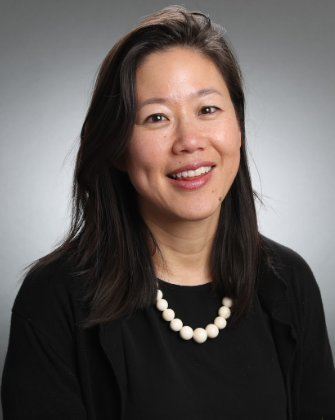 Colleen Chien teaches and conducts cross-disciplinary research on innovation, intellectual property, and the criminal justice system, with a focus on how technology, data, and innovation can be harnessed to achieve their potential for social benefit. With a law degree from Berkeley Law and engineering and humanities degrees from Stanford, Chien is known for her in-depth empirical studies of patent litigation, patent-assertion entities (PAEs) (a term that she coined), the secondary market for patents, and, in the criminal justice realm, on the “second chance” gap between those eligible for and receiving relief from the criminal justice system. Prior to joining Berkeley Law, Chien was Professor of Law at Santa Clara University School of Law. She previously served as Senior Advisor for Intellectual Property and Innovation in the Obama White House and currently advises the US Patent and Trademark Office as a Marian Croak Distinguished Scholar. Chien is among the top 20-cited intellectual property and cyberlaw scholars in the US and has been named one of Silicon Valley’s “Women of Influence,” and one of the 50 Most Influential People in Intellectual Property in the world.
Colleen Chien teaches and conducts cross-disciplinary research on innovation, intellectual property, and the criminal justice system, with a focus on how technology, data, and innovation can be harnessed to achieve their potential for social benefit. With a law degree from Berkeley Law and engineering and humanities degrees from Stanford, Chien is known for her in-depth empirical studies of patent litigation, patent-assertion entities (PAEs) (a term that she coined), the secondary market for patents, and, in the criminal justice realm, on the “second chance” gap between those eligible for and receiving relief from the criminal justice system. Prior to joining Berkeley Law, Chien was Professor of Law at Santa Clara University School of Law. She previously served as Senior Advisor for Intellectual Property and Innovation in the Obama White House and currently advises the US Patent and Trademark Office as a Marian Croak Distinguished Scholar. Chien is among the top 20-cited intellectual property and cyberlaw scholars in the US and has been named one of Silicon Valley’s “Women of Influence,” and one of the 50 Most Influential People in Intellectual Property in the world.
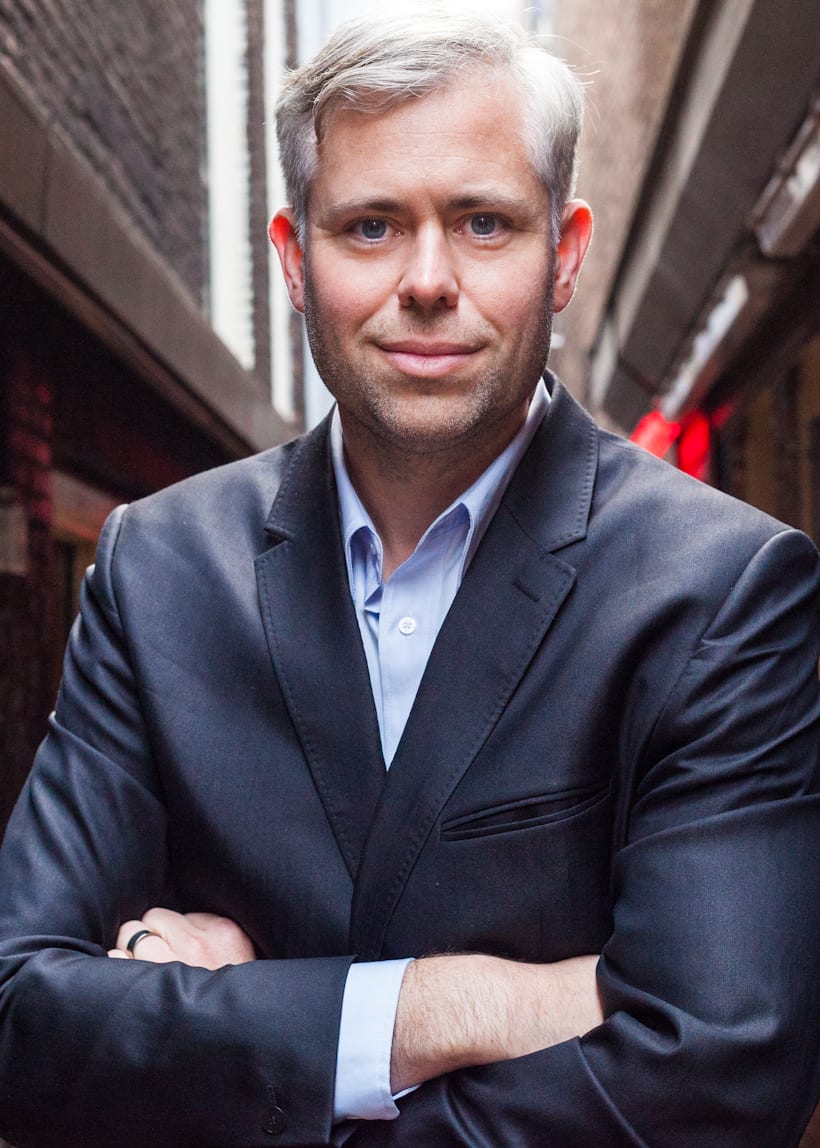 Chris Jay Hoofnagle is a teaching professor in the School of Law, with a dual appointment in the School of Information. He is an expert in information privacy law and teaches about regulation of technology. Hoofnagle’s research focuses on identity theft, security breaches, and consumer perceptions and attitudes towards privacy laws. He has written extensively in the fields of information privacy, the law of unfair and deceptive practices, consumer law, and identity theft. Professor Hoofnagle is co-founder of the Privacy Law Scholars Conference. Follow him at @hoofnagle. Publications, courses, and more »
Chris Jay Hoofnagle is a teaching professor in the School of Law, with a dual appointment in the School of Information. He is an expert in information privacy law and teaches about regulation of technology. Hoofnagle’s research focuses on identity theft, security breaches, and consumer perceptions and attitudes towards privacy laws. He has written extensively in the fields of information privacy, the law of unfair and deceptive practices, consumer law, and identity theft. Professor Hoofnagle is co-founder of the Privacy Law Scholars Conference. Follow him at @hoofnagle. Publications, courses, and more »
 Sonia Katyal is Distinguished Haas Professor and Associate Dean, Faculty Development and Research. Her scholarly work considers intellectual property, trademarks, trade secrecy, civil rights (including gender, race and sexuality), LGBTQ rights, anti–discrimination, property theory, and innovation. Professor Katyal is the co-author of Property Outlaws (Yale University Press, 2010) (with Eduardo Peñalver), which studies the intersection between civil disobedience and innovation in property and intellectual property frameworks. In 2008, Katyal was awarded a grant from the Warhol Foundation for her forthcoming book, Contrabrand, which studies the relationship between art, advertising and trademark and copyright law. In March of 2016, Professor Katyal was selected by U.S. Commerce Secretary Penny Pritzker to be part of the inaugural U.S. Commerce Department’s Digital Economy Board of Advisors. Publications, courses, and more »
Sonia Katyal is Distinguished Haas Professor and Associate Dean, Faculty Development and Research. Her scholarly work considers intellectual property, trademarks, trade secrecy, civil rights (including gender, race and sexuality), LGBTQ rights, anti–discrimination, property theory, and innovation. Professor Katyal is the co-author of Property Outlaws (Yale University Press, 2010) (with Eduardo Peñalver), which studies the intersection between civil disobedience and innovation in property and intellectual property frameworks. In 2008, Katyal was awarded a grant from the Warhol Foundation for her forthcoming book, Contrabrand, which studies the relationship between art, advertising and trademark and copyright law. In March of 2016, Professor Katyal was selected by U.S. Commerce Secretary Penny Pritzker to be part of the inaugural U.S. Commerce Department’s Digital Economy Board of Advisors. Publications, courses, and more »
 Deirdre K. Mulligan is a Professor in the School of Information and the School of Law (by courtesy). Her research explores legal and technical means of protecting values such as privacy, freedom of expression, and fairness in emerging technical systems. In 2017, Prof. Mulligan was appointed to a three-year term as a member of DARPA’s Information Science and Technology Study Group, the first lawyer on that body in its 30 year history. She is also currently serving a three-year term on the City of Oakland’s Privacy Advisory Commission. Prof. Mulligan is a founding board member of the Partnership for AI; a founding member of the Global Network Initiative, a multi-stakeholder initiative to protect and advance freedom of expression and privacy in the ICT sector; and Chair Emeritus of the Board of Directors of the Center for Democracy & Technology. Publications, courses, and more »
Deirdre K. Mulligan is a Professor in the School of Information and the School of Law (by courtesy). Her research explores legal and technical means of protecting values such as privacy, freedom of expression, and fairness in emerging technical systems. In 2017, Prof. Mulligan was appointed to a three-year term as a member of DARPA’s Information Science and Technology Study Group, the first lawyer on that body in its 30 year history. She is also currently serving a three-year term on the City of Oakland’s Privacy Advisory Commission. Prof. Mulligan is a founding board member of the Partnership for AI; a founding member of the Global Network Initiative, a multi-stakeholder initiative to protect and advance freedom of expression and privacy in the ICT sector; and Chair Emeritus of the Board of Directors of the Center for Democracy & Technology. Publications, courses, and more »
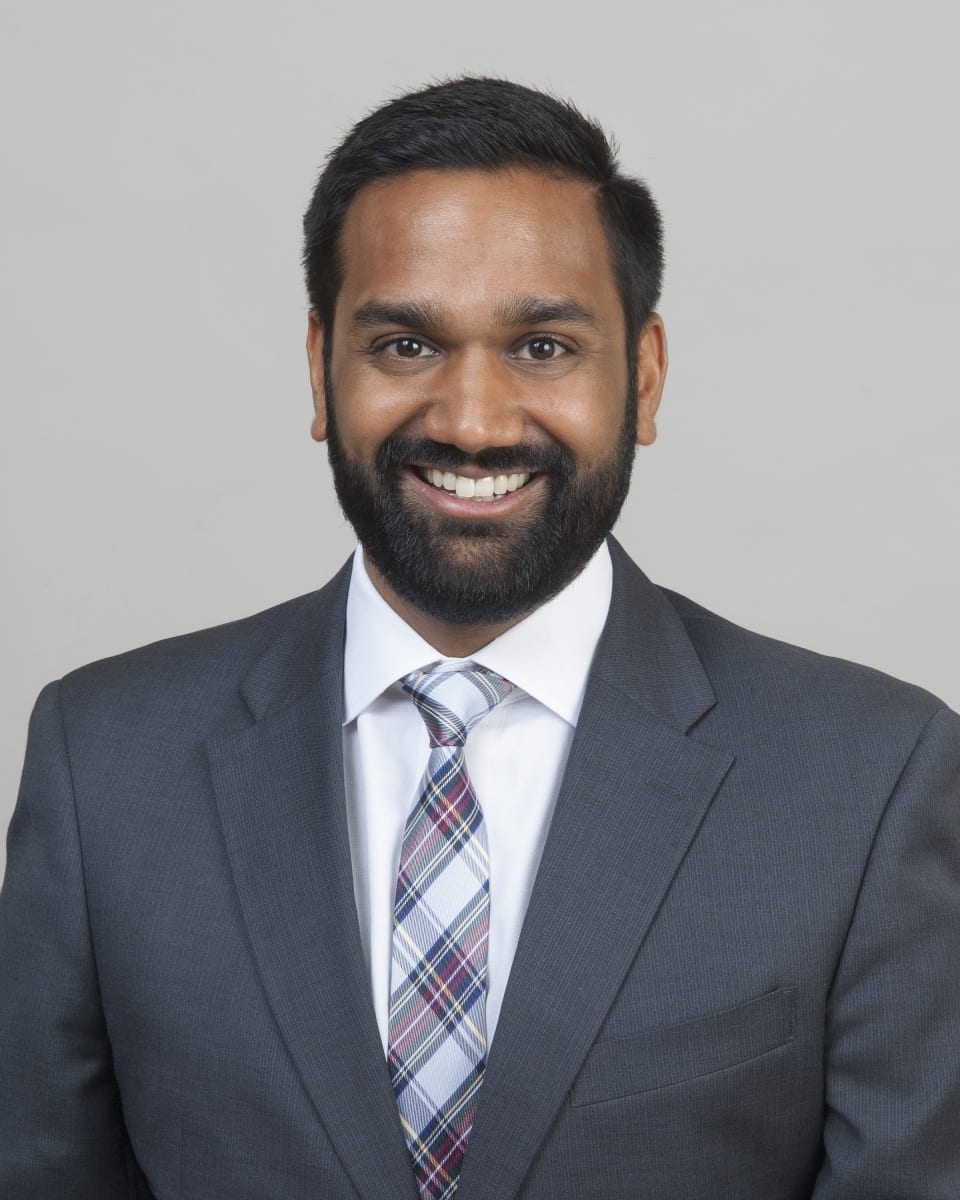 Tejas N. Narechania is the Robert and Nanci Corson Assistant Professor of Law. He focuses on matters related to telecommunications regulation and intellectual property. Before joining Berkeley Law, Professor Narechania clerked for Justice Stephen G. Breyer of the Supreme Court of the United States (2015-2016) and for Judge Diane P. Wood of the U.S. Court of Appeals for the Seventh Circuit (2011-2012). He has advised the Federal Communications Commission on network neutrality matters, where he served as Special Counsel (2012-2013). Professor Narechania’s research has appeared in the Columbia Law Review, Georgetown Law Journal, and the Michigan Law Review, among other venues, and his work has been cited by the White House, in the work of the Supreme Court and the federal Courts of Appeals, as well as the New York Times and the Washington Post. Publications, courses, and more »
Tejas N. Narechania is the Robert and Nanci Corson Assistant Professor of Law. He focuses on matters related to telecommunications regulation and intellectual property. Before joining Berkeley Law, Professor Narechania clerked for Justice Stephen G. Breyer of the Supreme Court of the United States (2015-2016) and for Judge Diane P. Wood of the U.S. Court of Appeals for the Seventh Circuit (2011-2012). He has advised the Federal Communications Commission on network neutrality matters, where he served as Special Counsel (2012-2013). Professor Narechania’s research has appeared in the Columbia Law Review, Georgetown Law Journal, and the Michigan Law Review, among other venues, and his work has been cited by the White House, in the work of the Supreme Court and the federal Courts of Appeals, as well as the New York Times and the Washington Post. Publications, courses, and more »
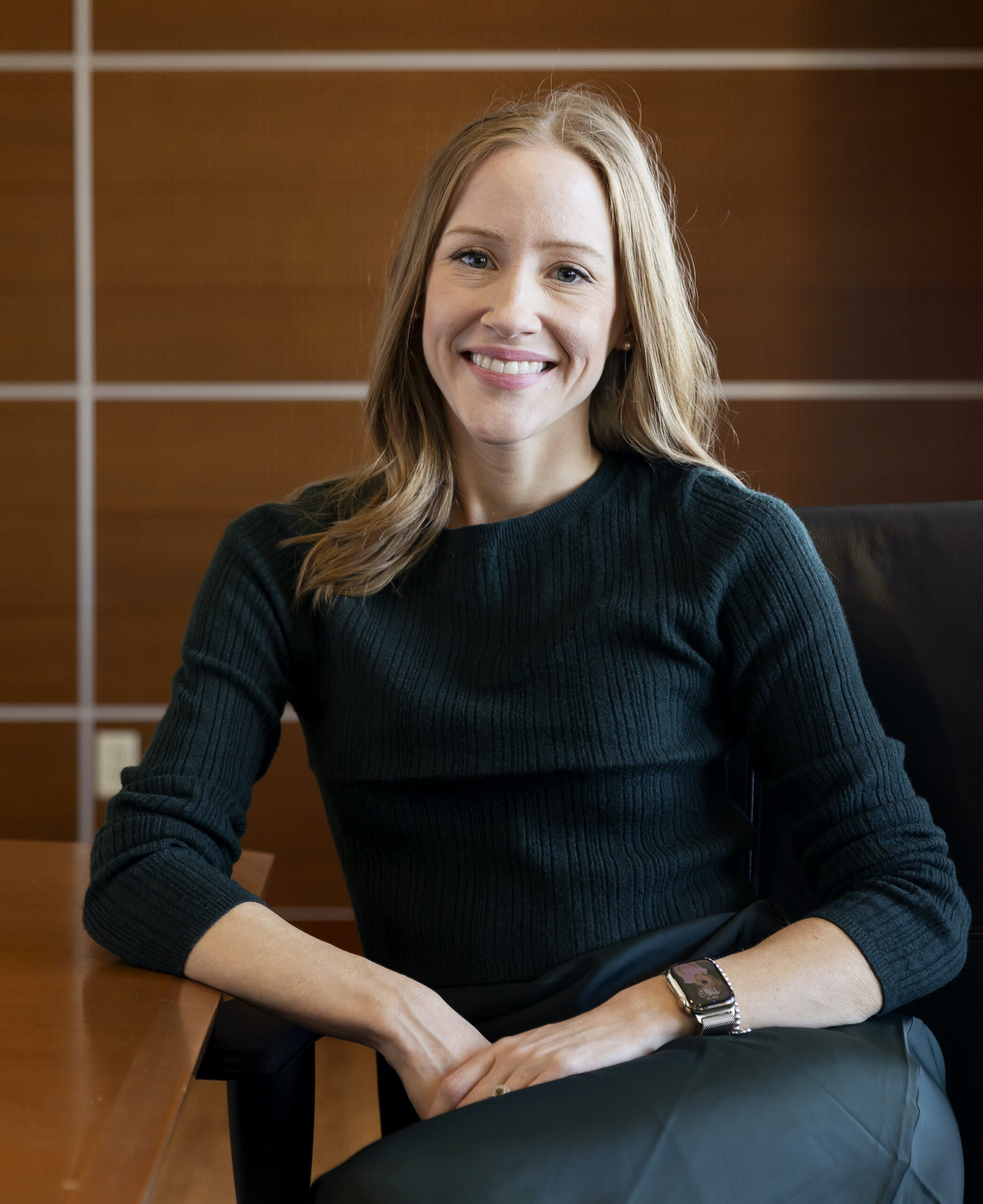 Brandie Nonnecke, PhD is Founding Director of the CITRIS Policy Lab, headquartered at UC Berkeley. She is an Associate Research Professor at the Goldman School of Public Policy (GSPP) where she directs the Tech Policy Initiative, a collaboration between CITRIS and GSPP to strengthen tech policy education, research, and impact. Brandie is the Director of Our Better Web, a program that supports empirical research, policy analysis, training, and engagement to address the sharp rise of online harms. She is a co-director of the Berkeley Center for Law and Technology at Berkeley Law. She also co-directs the UC Berkeley AI Policy Hub, an interdisciplinary initiative training researchers to develop effective AI governance and policy frameworks. Her research has been featured in Science, Wired, NPR, BBC News, MIT Technology Review, Buzzfeed News, among others. Publications, courses, and more »
Brandie Nonnecke, PhD is Founding Director of the CITRIS Policy Lab, headquartered at UC Berkeley. She is an Associate Research Professor at the Goldman School of Public Policy (GSPP) where she directs the Tech Policy Initiative, a collaboration between CITRIS and GSPP to strengthen tech policy education, research, and impact. Brandie is the Director of Our Better Web, a program that supports empirical research, policy analysis, training, and engagement to address the sharp rise of online harms. She is a co-director of the Berkeley Center for Law and Technology at Berkeley Law. She also co-directs the UC Berkeley AI Policy Hub, an interdisciplinary initiative training researchers to develop effective AI governance and policy frameworks. Her research has been featured in Science, Wired, NPR, BBC News, MIT Technology Review, Buzzfeed News, among others. Publications, courses, and more »
 Pamela Samuelson is Richard M. Sherman Distinguished Professor of Law and Information. Much of her recent work has focused on updating and adapting U.S. copyright law to meet challenges of the digital age. She has written amicus curiae briefs as well as law review and other articles on major software IP cases such as Oracle v. Google. Other recent work has focused on improving public access to mass digitized copies of in-copyright works. Professor Samuelson is co-founder and board member of Authors Alliance, a nonprofit organization that represents the interests of authors who want their works to be widely available for the public good. She is Chair of the Board of Directors of the Electronic Frontier Foundation and a Contributing Editor to Communications of the ACM, a computing professionals society. Follow her at @PamuelaSamuelson. She has been a distinguished visiting professor at the University of Toronto Law School as well as a visiting professor at Harvard Law School. Publications, courses, and more »
Pamela Samuelson is Richard M. Sherman Distinguished Professor of Law and Information. Much of her recent work has focused on updating and adapting U.S. copyright law to meet challenges of the digital age. She has written amicus curiae briefs as well as law review and other articles on major software IP cases such as Oracle v. Google. Other recent work has focused on improving public access to mass digitized copies of in-copyright works. Professor Samuelson is co-founder and board member of Authors Alliance, a nonprofit organization that represents the interests of authors who want their works to be widely available for the public good. She is Chair of the Board of Directors of the Electronic Frontier Foundation and a Contributing Editor to Communications of the ACM, a computing professionals society. Follow her at @PamuelaSamuelson. She has been a distinguished visiting professor at the University of Toronto Law School as well as a visiting professor at Harvard Law School. Publications, courses, and more »
 Paul Schwartz is Jefferson E. Peyser Professor of Law. His scholarship focuses on how the law has sought to regulate and shape information technology. His most frequent areas of publication concern information privacy and data security. At present, Professor Schwartz is engaged in research into comparative privacy developments in the U.S. and the European Union, cloud computing, and the interplay between state and federal privacy law. Follow him at @paulmschwartz. Publications, courses, and more »
Paul Schwartz is Jefferson E. Peyser Professor of Law. His scholarship focuses on how the law has sought to regulate and shape information technology. His most frequent areas of publication concern information privacy and data security. At present, Professor Schwartz is engaged in research into comparative privacy developments in the U.S. and the European Union, cloud computing, and the interplay between state and federal privacy law. Follow him at @paulmschwartz. Publications, courses, and more »
 Jennifer M. Urban is a Clinical Professor of Law and the Director of Policy Initiatives for the Samuelson Law, Technology & Public Policy Clinic. Her work considers how the legal, private-ordering, and social systems that govern technology interact with values such as free expression, access to knowledge, freedom to create or innovate, and privacy. With Joe Karaganis, Professor Urban conceived and directs The Takedown Project, a consortium of scholars studying takedown regimes around the world. (www.takedownproject.org). Recent research includes a three-part empirical study, with Karaganis and Brianna L. Schofield, of the DMCA notice-and-takedown system. The studies reveal notice-and-takedown’s importance to copyright holders, online service providers, and the online ecosystem, along with some weaknesses. Professor Urban’s recent paper with Mark Lemley shows that judges with more experience handling patent cases are more likely to rule for defendants. Recent papers with Chris Hoofnagle empirically question longstanding research used to support the dominant “notice and choice” regime in privacy regulations. Publications, courses, and more »
Jennifer M. Urban is a Clinical Professor of Law and the Director of Policy Initiatives for the Samuelson Law, Technology & Public Policy Clinic. Her work considers how the legal, private-ordering, and social systems that govern technology interact with values such as free expression, access to knowledge, freedom to create or innovate, and privacy. With Joe Karaganis, Professor Urban conceived and directs The Takedown Project, a consortium of scholars studying takedown regimes around the world. (www.takedownproject.org). Recent research includes a three-part empirical study, with Karaganis and Brianna L. Schofield, of the DMCA notice-and-takedown system. The studies reveal notice-and-takedown’s importance to copyright holders, online service providers, and the online ecosystem, along with some weaknesses. Professor Urban’s recent paper with Mark Lemley shows that judges with more experience handling patent cases are more likely to rule for defendants. Recent papers with Chris Hoofnagle empirically question longstanding research used to support the dominant “notice and choice” regime in privacy regulations. Publications, courses, and more »
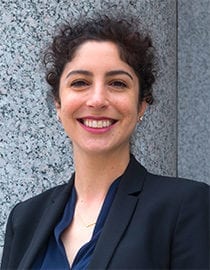 Rebecca Wexler is an Assistant Professor of Law working on data, technology, and criminal justice. She focuses on evidence law, criminal procedure, privacy and intellectual property protections surrounding new data-driven criminal justice technologies. Before joining Berkeley Law, Professor Wexler clerked for Judge Pierre N. Leval of the United States Court of Appeals for the Second Circuit and Judge Katherine Polk Failla of the United States District Court for the Southern District of New York. She worked as a Yale Public Interest Fellow at The Legal Aid Society’s criminal defense practice and as a Lawyer-inResidence at The Data and Society Research Institute. Follow her at @RebeccaWexler. Publications, courses, and more »
Rebecca Wexler is an Assistant Professor of Law working on data, technology, and criminal justice. She focuses on evidence law, criminal procedure, privacy and intellectual property protections surrounding new data-driven criminal justice technologies. Before joining Berkeley Law, Professor Wexler clerked for Judge Pierre N. Leval of the United States Court of Appeals for the Second Circuit and Judge Katherine Polk Failla of the United States District Court for the Southern District of New York. She worked as a Yale Public Interest Fellow at The Legal Aid Society’s criminal defense practice and as a Lawyer-inResidence at The Data and Society Research Institute. Follow her at @RebeccaWexler. Publications, courses, and more »
Fellows
 Dr. Hao Yuan joined BCLT in January 2021 as a Senior Fellow on our Asia IP and Technology Project. Prior to coming to Berkeley, Dr. Hao taught patent law and anti-monopoly law (“AML”) at the School of Law, Tsinghua University (2015-2020). Yuan has published academic papers and articles in the fields of patent law, competition law, data protection and nano-electronics. Her most recent academic paper (En) is “Through the Anti-Monopoly Lens: What Constitutes ‘Unfairly High Patent Pricing’ in China?”.(opens in a new tab) Currently Yuan is working on a practical treatise on Chinese patent law, and a research paper that aims to explore the curious contour and implications of innovation/creation in IP at the coming era of artificial intelligence. Dr. Hao has advised several IP and AML legislation projects in China. She has also participated in a dozen litigation, administrative investigation and arbitration cases, including landmark SEP cases, as an advisory panel member or expert witness. Yuan has been recently listed as an arbitrator at the International Arbitration Center in Tokyo (“IACT”). She is also a Senior Of Counsel at LexField Law. Before becoming academic Yuan practiced years in IP litigation at KWM. Yuan received her J.D. from Brooklyn Law School (2011), Ph.D. in Nano-electronics from Penn State University (2006), and B.S. in Physics from Peking University (1999).
Dr. Hao Yuan joined BCLT in January 2021 as a Senior Fellow on our Asia IP and Technology Project. Prior to coming to Berkeley, Dr. Hao taught patent law and anti-monopoly law (“AML”) at the School of Law, Tsinghua University (2015-2020). Yuan has published academic papers and articles in the fields of patent law, competition law, data protection and nano-electronics. Her most recent academic paper (En) is “Through the Anti-Monopoly Lens: What Constitutes ‘Unfairly High Patent Pricing’ in China?”.(opens in a new tab) Currently Yuan is working on a practical treatise on Chinese patent law, and a research paper that aims to explore the curious contour and implications of innovation/creation in IP at the coming era of artificial intelligence. Dr. Hao has advised several IP and AML legislation projects in China. She has also participated in a dozen litigation, administrative investigation and arbitration cases, including landmark SEP cases, as an advisory panel member or expert witness. Yuan has been recently listed as an arbitrator at the International Arbitration Center in Tokyo (“IACT”). She is also a Senior Of Counsel at LexField Law. Before becoming academic Yuan practiced years in IP litigation at KWM. Yuan received her J.D. from Brooklyn Law School (2011), Ph.D. in Nano-electronics from Penn State University (2006), and B.S. in Physics from Peking University (1999).
 Allison A. Schmitt is a Fellow at Berkeley Law, and the Director of the Berkeley Center for Law and Technology’s Life Sciences Law and Policy Center. Her scholarship focuses on exploring theoretical and practical issues at the interface of life sciences and the law, including IP, regulatory, and funding considerations. She is affiliated with the Berkeley Fellowship Program, a joint project between Berkeley Law and the Berkeley Haas School of Business. Prior to her current role at BCLT, Allison clerked for the Honorable Stanley R. Chesler at the District of New Jersey, where she worked extensively on ANDA cases. She then clerked for the Honorable Kathleen M. O’Malley at the Federal Circuit, where she further honed her knowledge of bio-pharma law and case management. She then spent several years in private practice focusing on life science patent litigation, patent counseling, and policy matters. Allison graduated from Berkeley Law with her JD in 2015; prior to her legal career, she earned a PhD in Chemistry from Duke University. Courses and more »
Allison A. Schmitt is a Fellow at Berkeley Law, and the Director of the Berkeley Center for Law and Technology’s Life Sciences Law and Policy Center. Her scholarship focuses on exploring theoretical and practical issues at the interface of life sciences and the law, including IP, regulatory, and funding considerations. She is affiliated with the Berkeley Fellowship Program, a joint project between Berkeley Law and the Berkeley Haas School of Business. Prior to her current role at BCLT, Allison clerked for the Honorable Stanley R. Chesler at the District of New Jersey, where she worked extensively on ANDA cases. She then clerked for the Honorable Kathleen M. O’Malley at the Federal Circuit, where she further honed her knowledge of bio-pharma law and case management. She then spent several years in private practice focusing on life science patent litigation, patent counseling, and policy matters. Allison graduated from Berkeley Law with her JD in 2015; prior to her legal career, she earned a PhD in Chemistry from Duke University. Courses and more »
 Miriam Kim is a Partner at Munger, Tolles & Olson LLP, practitioner fellow at the Berkeley Center for Law & Technology, and former law clerk to Judge Levin Campbell (1st Cir.)
Miriam Kim is a Partner at Munger, Tolles & Olson LLP, practitioner fellow at the Berkeley Center for Law & Technology, and former law clerk to Judge Levin Campbell (1st Cir.)
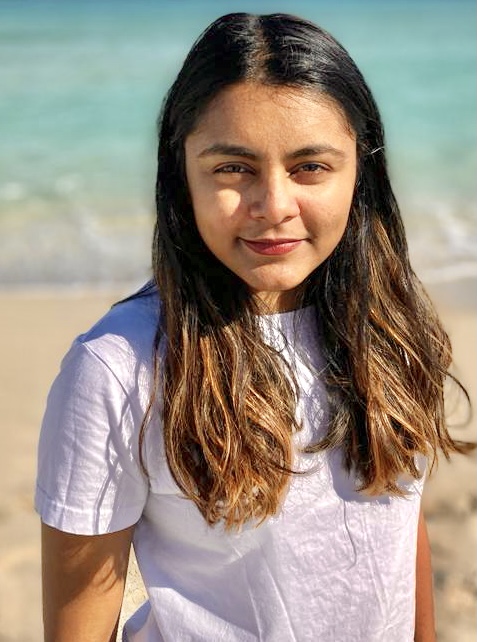 Ramya Chandrasekhar is a research fellow and leads the Biometrics Project. This project aims to study legal and institutional regulation of biometric data, from a critical and comparative perspective. Prior to joining BCLT, Ramya worked with the Legal and Innovation team at the World Bank as an International Finance and Development Fellow, on personal data protection enforcement involving digital platforms. She has also collaborated with the Information Communication and Technology team at UNICEF as well as Guarini Global Law & Tech, on projects relating to digital risk and data governance within international organizations. Ramya is a lawyer by training and is qualified to practice at the bar in India. She holds a Master of Law from New York University, and a Bachelor of Law from the West Bengal National University of Juridical Sciences. She also has over 4 years of experience working with law firms, civil society, and academic research centers on a range of issues at the intersection of law and technology, including digital ID and the digital welfare state, surveillance, information privacy, and Fintech regulation. Ramya’s research interests lie in global data law, critical data studies and science and technology studies.
Ramya Chandrasekhar is a research fellow and leads the Biometrics Project. This project aims to study legal and institutional regulation of biometric data, from a critical and comparative perspective. Prior to joining BCLT, Ramya worked with the Legal and Innovation team at the World Bank as an International Finance and Development Fellow, on personal data protection enforcement involving digital platforms. She has also collaborated with the Information Communication and Technology team at UNICEF as well as Guarini Global Law & Tech, on projects relating to digital risk and data governance within international organizations. Ramya is a lawyer by training and is qualified to practice at the bar in India. She holds a Master of Law from New York University, and a Bachelor of Law from the West Bengal National University of Juridical Sciences. She also has over 4 years of experience working with law firms, civil society, and academic research centers on a range of issues at the intersection of law and technology, including digital ID and the digital welfare state, surveillance, information privacy, and Fintech regulation. Ramya’s research interests lie in global data law, critical data studies and science and technology studies.


 Chris Jay Hoofnagle
Chris Jay Hoofnagle Deirdre K. Mulligan
Deirdre K. Mulligan Tejas N. Narechania
Tejas N. Narechania
 Pamela Samuelson
Pamela Samuelson Paul Schwartz
Paul Schwartz Jennifer M. Urban
Jennifer M. Urban Rebecca Wexler
Rebecca Wexler Dr. Hao Yuan joined BCLT in January 2021 as a Senior Fellow on our Asia IP and Technology Project. Prior to coming to Berkeley, Dr. Hao taught patent law and anti-monopoly law (“AML”) at the School of Law, Tsinghua University (2015-2020). Yuan has published academic papers and articles in the fields of patent law, competition law, data protection and nano-electronics. Her most recent academic paper (En) is
Dr. Hao Yuan joined BCLT in January 2021 as a Senior Fellow on our Asia IP and Technology Project. Prior to coming to Berkeley, Dr. Hao taught patent law and anti-monopoly law (“AML”) at the School of Law, Tsinghua University (2015-2020). Yuan has published academic papers and articles in the fields of patent law, competition law, data protection and nano-electronics. Her most recent academic paper (En) is 

 Ramya Chandrasekhar is a research fellow and leads the Biometrics Project. This project aims to study legal and institutional regulation of biometric data, from a critical and comparative perspective. Prior to joining BCLT, Ramya worked with the Legal and Innovation team at the World Bank as an International Finance and Development Fellow, on personal data protection enforcement involving digital platforms. She has also collaborated with the Information Communication and Technology team at UNICEF as well as Guarini Global Law & Tech, on projects relating to digital risk and data governance within international organizations. Ramya is a lawyer by training and is qualified to practice at the bar in India. She holds a Master of Law from New York University, and a Bachelor of Law from the West Bengal National University of Juridical Sciences. She also has over 4 years of experience working with law firms, civil society, and academic research centers on a range of issues at the intersection of law and technology, including digital ID and the digital welfare state, surveillance, information privacy, and Fintech regulation. Ramya’s research interests lie in global data law, critical data studies and science and technology studies.
Ramya Chandrasekhar is a research fellow and leads the Biometrics Project. This project aims to study legal and institutional regulation of biometric data, from a critical and comparative perspective. Prior to joining BCLT, Ramya worked with the Legal and Innovation team at the World Bank as an International Finance and Development Fellow, on personal data protection enforcement involving digital platforms. She has also collaborated with the Information Communication and Technology team at UNICEF as well as Guarini Global Law & Tech, on projects relating to digital risk and data governance within international organizations. Ramya is a lawyer by training and is qualified to practice at the bar in India. She holds a Master of Law from New York University, and a Bachelor of Law from the West Bengal National University of Juridical Sciences. She also has over 4 years of experience working with law firms, civil society, and academic research centers on a range of issues at the intersection of law and technology, including digital ID and the digital welfare state, surveillance, information privacy, and Fintech regulation. Ramya’s research interests lie in global data law, critical data studies and science and technology studies. David Zapolsky
David Zapolsky